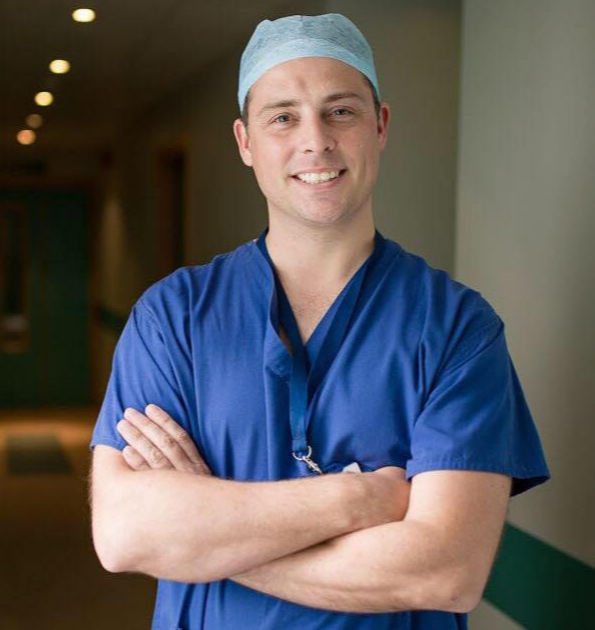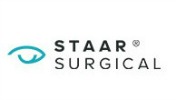For FAQs regarding Coronavirus please click here
Who gets keratoconus?
Between 1 in 500 and 1 in 450 people get keratoconus. It usually first affects people in puberty.
YOUR CORNEA IS THINNING AND BULGING – LIKE A HERNIA
While you may not notice anything wrong in its very early stages, an optometrist may tell you that you have early signs of keratoconus. Unchecked, you’ll notice an inability to focus properly, mild blurring of vision, slightly distorted vision, where straight lines look bent or wavy. You may have an increased sensitivity to light and glare. You may see redness in your eyes and experience swelling. It may be getting worse, quickly. In later stages of keratoconus you experience more blurry and distorted vision. Your short-sightedness or astigmatism prescription may change fast, requiring you to replace your glasses more often. Your contact lenses may no longer fit properly and become uncomfortable.
KERATOCONUS CAN BE A PAINFUL CONDITION LEADING TO EMOTIONAL EXHUASTION
Before corneal cross-linking, patients can feel exhausted by the disease and emotionally spent. Many report it’s an exhausting condition that results in non-stop blurriness and feeling pain when putting in contact lenses.
THE IMPACT OF KERATOCONUS ON YOUR DAILY LIFE CAN BE COLOSSAL
Without the contact lenses that might cause you significant grief, you might be house-bound, unable to work, study, read, play or exercise. Performing the most basic daily living tasks can be difficult. You may feel vulnerable in unfamiliar environments, especially if you have no easy access to safe facilities to clean your lenses.
YOUR KERATOCONUS MAY CHANGE HOW OTHERS SEE YOU
Some patients report that they become quiet, introverted and generally discombobulated if forced to remove their glasses for long-term periods (such as, during a long-haul flight). One of the most frustrating things patients mention is people telling them to wear contact lenses instead of glasses, given they give them so much grief. But without the glasses, they can’t see.
A STABLE EYE IS A GOOD EYE
If you suffer from keratoconus, you’re tired. Unfortunately, many well-meaning GPs and even optometrists are unfamiliar with the latest advances in stabilising and, in some cases, even reversing keratoconus. They might advise you to wait until it worsens to get a corneal transplant. However, when you experience the weight that will lift off your shoulders when your eye becomes stable, you’ll know you’ve made the right decision to have corneal cross-linking.
Affiliations and memberships
I am proud to be associated with these organisations as a member or consultant
Supplementary information about keratoconus
In my expert hands, you certainly don’t need to know all of the information I’ve included in the toggles below. If you’d like to know how it all works, however, open them and learn more.
Take the first step
Find out if your eyes are suitable for vision correction
Book a free screening now or get us to give you a call back to answer questions
Compare keratoconus with other relevant eye conditions
Eye conditions are frequently misunderstood, so here’s a quick overview of the ones I most commonly treat
ASTIGMATISM
Astigmatism is an imperfection in the shape of your eye’s cornea or lens. Usually, the cornea and lens are round or spherical like a football. In eyes that have astigmatism, the cornea and or lens of the eye are oval in shape like an egg. As a result, light rays focus on a blurred oval shape on the retina rather than as a single sharp image. Learn more about astigmatism…
Treatments for astigmatism
SHORT-SIGHTEDNESS
Short-sightedness is also known as Myopia.
Short-sightedness (or myopia) is an eye condition where the focusing power of the eye is too strong. For that reason, if you’re short-sighted, you need to wear negative power lenses to reduce the focusing power of the eye. Doing so brings the image of the world into focus on our retina. Learn more about short-sightedness…
Treatments for short-sightedness
LONG-SIGHTEDNESS
Long-sightedness is also known as Hyperopia or Hypermetropia.
Hyperopia or long-sightedness is an eye condition where the focusing power of the eye is too weak. For that reason, if you have long-sightedness, you need to wear positive power lenses to increase the focusing power of the eye and bring the image of the world into focus on our retina. Learn more about long-sightedness…
Treatments for long-sightedness
DRY EYE
The term “dry eye” covers many different eye conditions where an imbalance in the volume or quality of the tears results in inflammation and damage to the surface of the eye. Patients have varying degrees of dry eye symptoms from occasional discomfort and stinging to severe pain and inability to see. Learn more about dry eye…
PRESBYOPIA
Presbyopia is the eye condition which causes people aged 45 and older to need reading glasses. The ageing of the eye’s natural lens which stiffens and loses its ability to focus causes presbyopia.
Treatments for presbyopia
CATARACT
Cataract is the term we use to describe the changes that occur when the lens of the eye loses its transparency and changes from appearing like a crystal clear window to appearing like a misted window like frosted glass. Learn more about cataract…
Treatments for cataract
- Standard Cataract Surgery
- Refractive Cataract Surgery
- Complex Cataract Surgery
RECURRENT CORNEAL EROSION
Recurrent corneal erosion is a painful eye condition where there are episodes of severe pain on waking which resolve over a few days to a week only to reoccur again in the future. Learn more about recurrent corneal erosion…
Treatments for recurrent corneal erosion
- Laser Phototherapeutic Keratectomy (PTK)

About the author
Mr Alex J. Shortt | Consultant Ophthalmic Surgeon
MB BCh MSc PhD FRCOphth PGDipCatRef
I’m Alex Shortt, a highly trained academic researcher and Consultant Ophthalmic Surgeon based in London’s famous Harley Street medical district. I trained and worked as a consultant for 14 years at London’s Moorfields Eye Hospital. I specialise in advanced technologies for correcting vision, including cataract surgery, implantable contact lenses and laser vision correction.








